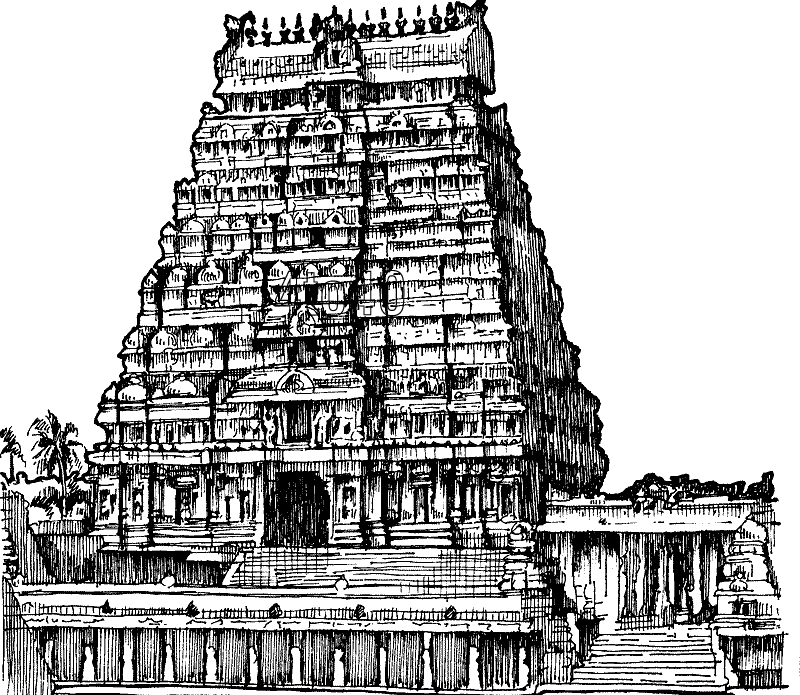LALITHA SAHASRANAMAM # 193
- S Subramaniam
- Jul 10, 2023
- 2 min read
LALITHA SAHASRANAMAM
दुष्टदूरा दुराचार-शमनी दोषवर्जिता ।
सर्वज्ञा सान्द्रकरुणा समानाधिक-वर्जिता ५१॥

Dushta-doora Durachara Shamani Doshavarjita
Sarvagyna Sandra Karuna Samanadhika Varjita – 51
दुष्टदूरा (193)
Dushta doora (193)
Meaning:
Devi protects her devotees and keeps them far away from the reach of sinners. According to few scholars, Devi herself is beyond the reach of sinners.

Interpretation:
The Namah contains the twin words Dushta and Doora. Who is a Dushta? Dushta literally means those who are wicked, cruel and corrupt.
Those souls who don't worship her but instead abuse her. Those who are committed sinners who indulge in sinful activities. Doora means distance and when combined, the two words can be interpreted as keeping away from wicked persons.
Example from Ramayana
We all are aware of why Lord Rama, after his return to Ayodhya, decided to stay away from Devi Sita and instructed Lakshmana to leave her in a forest. This was after Rama,in disguise, hears to a comment by a Washer man (dhobhi). Here is the relevant sloka:

नाहं बिभर्मि त्वां दुष्टां उषतीं पर-वेष्म-गाम्
स्त्री-लोभी बिभ्र्यात् सीतां रामो नाहं भजे पुनः
Naham bibharmi tvam dushtam
Ushatim para-veshma-gam
Stri-lobhi bibhryat Seetam
Ramo naham bhaje punaha
I will not maintain you, O wicked woman, a sinner who returns home at dawn after staying away the whole night from another's house. Rama who has lust for his wife Sita, may continue to maintain and live with her, but I am not like him.
From the above narrative, it will be clear to readers as to what exactly Dushta stands for.

A similar meaning to the word has been assigned by the great scholar Narayana Pandit in his book Hitopadesha (a beneficial advice) written during the reign of King Dhaval Chandra of Bengal during 8th Century.
वरं शून्या शाला न च खलु वरो दुष्टवृषभः
Varam Shoonya Sala na cha khalu varo dushta vrishabha
The King of the Devas, Lord Indra who is credited with composing the Maha Lakshmi Ashtakam makes a mention about the word Dushta in the Slokam:

Sarvajne Sarva Varade Sarva Dushta Bhayankari
Devi (Lakshmi) you are the one who knows everything (Sarvagjne) , you are the bestower of all the boons (Sarva varade), your name frightens the wicked (Sarva Dushta bhayankari).
Author's Notes:
This Namah in LSN is very different from the other namahs we have thus far. It speaks about sinners and Devi providing protection to her Devotees from wicked people.

Human mind is very fickle. It gets easily corrupted when in association with those who are wicked or corrupt. Hence it needs a cover, s proper guidance to stay away from the reach of wicked. Those who are deeply involved in worship of Devi are safe as Devi will ensure that their minds do not fall prey to the temptation of wicked person.
One should also understand that though Devi has the power to destroy sinners or bless them with her grace to bring them to good books, she doesn't do it - for each mind is controlled by the Karma theory. Human beings have to necessarily undergo the effects of their own Karma and cannot escape from it.
Disclaimer: All matters contained in this article are the property of www.templesofasia.com. The opinions expressed in this article are purely that of the author. The author alone is responsible for the accuracy, authenticity, completeness and validity of all the information in the article.


Comments